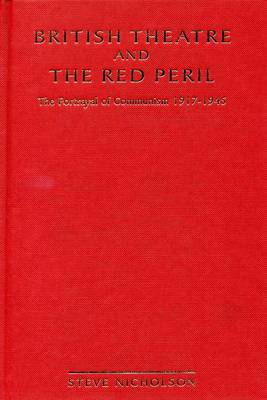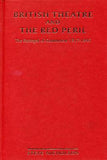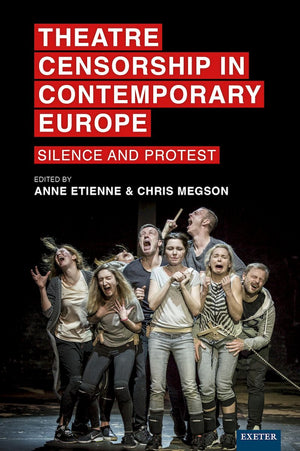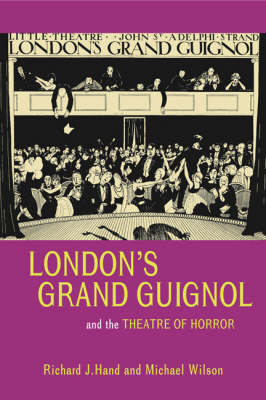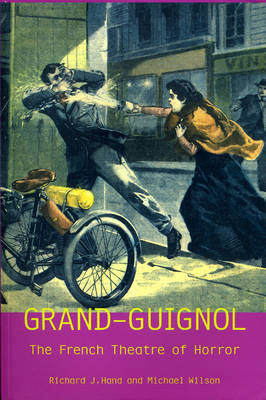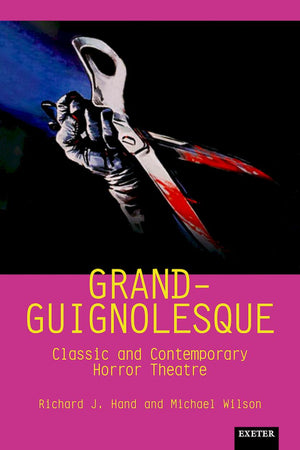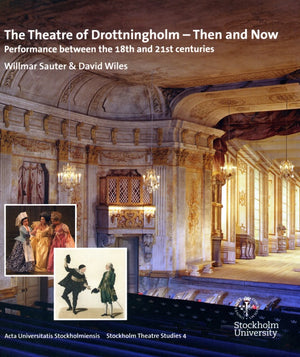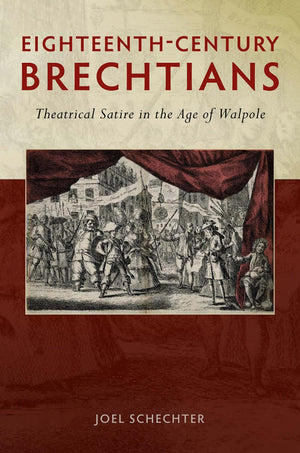University of Exeter Press
British Theatre And The Red Peril
The Portrayal of Communism 1917-1945
Couldn't load pickup availability
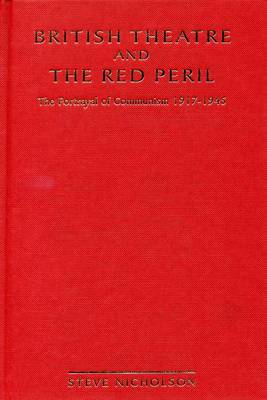
- 224 Pages
British Theatre and the Red Peril examines how communism was portrayed in plays in the British theatre between 1917 and 1945, and how at a time when the capitalist system seemed on the verge of collapse, the theatre played a significant part in communicating and manipulating political propaganda in order to influence audiences. It reveals explicit right-wing propaganda produced within mainstream British theatre and questions the assumption that political theatre is almost always left-wing.
The book draws on published and unpublished scripts and archive documents to demonstrate how the theatre became a key site for propaganda and ideological warfare. It discusses the methods by which the Lord Chamberlain, the government and even royalty exerted control over the political views voiced on stage in an age when contemporary commentators described the theatre as second only to the press in terms of its significance as a medium of communication.
British Theatre and the Red Peril examines how communism was portrayed in plays in the British theatre between 1917 and 1945, and how at a time when the capitalist system seemed on the verge of collapse, the theatre played a significant part in communicating and manipulating political propaganda in order to influence audiences.
'This book appears to be that extreme rarity, a genuinely original contribution to our knowledge and understanding of twentieth-century British theatre. I don't know of anybody else besides Steve Nicholson who has delved so deeply or so keenly into the archives of the Lord Chamberlain to uncover a shoal of apparently subversive, politically-motivated play scripts, as well as the extraordinary and devious machinations of the censor and his friends in high places to block and suppress them. The result is a book which is at once refreshingly original and depressingly predictable . . . British Theatre and the Red Peril emerges as a truly significant and courageous work.' (New Theatre Quarterly , 2002)
'Political theatre comes in many shapes and sizes and, more often than not, is assumed to be left-wing in character. Steve Nicholson's fascinating study of the impact the Bolshevik revolution had on the British theatre shows that, whilst this common assumption is frequently correct, there is another and seldom recounted history of political theatre associated with the right.' (Theatre Research International, Vol. 26:2 , 2001)
'An attractively produced volume carefully researched and accessibly written. The book is likely to become (and remain) a standard work on the subject.' (Albion, Vol. 33, Issue 1 , Spring 2001)
'Steve Nicholson offers us a meticulously researched and critically astute study of a fascinating period of theatre in the UK. The main text is supported by a very useful chronological chart of plays and events between 1918 and 1946, a series of mini-biographies of the leading characters involved, a good number of pertinent and informative illustrations and a very helpful bibliography.' (Studies in Theatre and Performance, Vol 20, no 2 , June 2000)
'I know of no other book that investigates the depiction of the Soviet Union between 1917 and 1945. The author charts the response to plays dealing with the 'Red Peril' from the terrified reaction of the early twenties, through the more inquisitive tone of the 'intellectual' thirties to the paradoxical situation of the war years when the 'evil empire' became an essential ally.' (Dominic Shellard, Department of English Literature, The University of Sheffield)
‘After discussing censorship in the first two chapters, Nicholson turns to the plays themselves and the rest of the book is largely a series of plot summaries. But what plots! It is to Nichols’s credit that after reading the book I immediately wanted to run out and read many of the plays he describes. This would be no easy feat, since many of the plays Nicholson examines were never published.’ (Theatre Journal, Dec 2002)
List of Illustrations
Preface and Acknowledgements
Brief Chronology
1. Not a Political Arena?
2. The Revolution will not be Dramatised
3. No More than a Bad Smell from the North East
4. Wakening the Devil
5. When England goes Communist
6. The Land of the Free
Afterword
Notes
Appendix: Biographies and Production Details
Select Bibliography
Index







